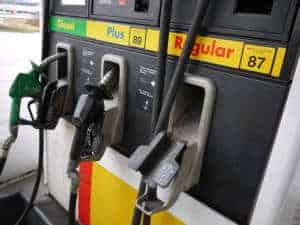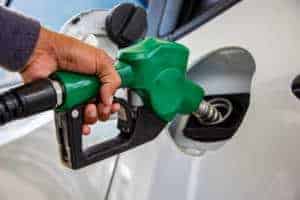Signs Your Car Has Bad Gas
Did I Put Bad Gas in My Car?
When your car is sputtering, making pinging sounds or its of sluggish when driving, you may have bad gas. Even though contaminated gasoline is not very common. It does get into the tanks of unsuspecting drivers vehicles more often than you might think. Bad gas in your cars engine can have damaging effects
Bad gas is fuel that doesn’t combust properly. The Symptoms include:
- Difficulty starting up
- Rough idling
- Stalling
- Pinging sounds
- Check engine light goes on
- Poor fuel economy
- Higher exhaust emissions

How the Contamination Process Happens
Your cars engine gets power from an ignition process that depends upon fine fuel vapors injected into the combustion chamber. When this process is not optimal the vapors do not combust properly and the ignition is interrupted. Leading to subpar engine performance. In exceptional cases it can lead to engine damage.
There are many places that gas contamination can occur, at the refinery, during transportation or at the gas station. Delivery or storage issues such as a corroded underground tank or an insufficiently sealed vehicle gas cap are the main culprits of water contamination. Smaller sediment particles not filtered by the fuel nozzle can build up over time on engine parts and clog fuel injectors. Typically gasoline has 10% ethanol by content. Ethanol attracts water molecules, but a few drops won’t necessarily hurt your engine. Greater water content from issues related to delivery and storage, or the fueling itself could be a potential problem.
Filling up with a lower octane gas than your vehicle requires or using old gas that has broken down over time also causes problems. Gasoline is a mixture of several different substances and over time it can break into its various elements. These elements include fuels and solvents that aid in your vehicles combustion process.
How to Avoid Bad Gas
- You should avoid contaminated gas when possible. Only use the correct octane fuel for your car. Do not use of old gas and buy only from reputable stations.
- Use the proper octane fuel for your vehicle. The conditions caused by bad gas can occur when someone downgrades octane. The “octane number” is a measure of how much the air-fuel mixture is resistant to detonation.The higher the “octane number” is the more resistant it is and the more is can be compressed without exploding. The higher the pressure is at the point the air-fuel mix ignites the more efficient the engine works. Modern engines are designed for high air-fuel mix pressure, if the mix ignites before that pressure is reached the engine won’t work properly, because ignition will happen at the wrong moment in the engine cycle. That’s why only fuel with right “octane number” should be used. The vehicle’s owners manual should specify which “octane number” is right for your vehicle engine.
- Gasoline stored and not mixed over an extended period of time—more than a year—will break down, whether in your tank or in a gas container. A fuel stabilizer may help extend the life of the fuel, but may not eliminate the problem.
- In very rare cases you may purchase gasoline that has been stolen.. While rare, some thieves have used modified trucks to steal fuel from an underground storage tanks and resell the fuel at a steep discount. Fuel that has not been stored properly it is much more likely to have significant amounts of water or sediment in it.
- What about when someones puts sugar in a gas tank for revenge. In fact that the act itself is an “urban legend.” The belief that sugar caramelizes in your car and acts as cement in the engine to cause major engine damage is a myth. While it’s certainly not good for your engine and it will have to have it cleaned out by a licensed mechanic. Sugar does not dissolve in gasoline but fuel filters should prevent it from reaching the engine.
How to Fix a Bad Gas Problem
If you believe that you have purchase bad gas then check first with the station where you think you may have bought the fuel. They may have had other customers who have also contacted them about the same problem. Do not try to diagnose your vehicles engine problems on your own. A proper diagnosis is best done by a licensed mechanic. Your mechanic will analyze the fuel in your vehicle to determine its content. If the problem is minor, adding octane booster or a higher octane fuel to your gas tank may be sufficient. If there is a small amount of water in the gas tank you can add dry gas to solve the problem. When the problem is more severe, you may need to have the gas tank drained and the engine flushed.

